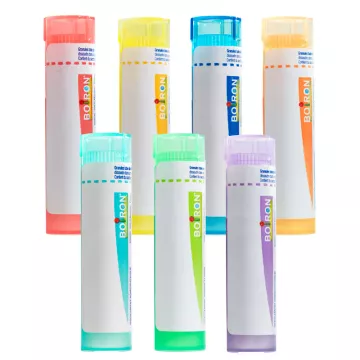
What isfood poisoning and how can I recognize it?
Food poisoning is a common reaction resulting from the consumption of food or drink contaminated with pathogens such as bacteria, viruses, parasites or toxins. The most common symptoms include nausea, vomiting, diarrhea, abdominal pain, fever and chills. These symptoms may appear hours to days after eating contaminated food.
What are the main causes offood poisoning?
The main causes offood poisoning are contamination of food by bacteria such as Salmonella, E. coli and Listeria, viruses such as norovirus, and less frequently by parasites such as Giardia. Contamination can occur at any stage of food production, processing, delivery and preparation.
How canfood poisoning be prevented?
Preventingfood poisoning involves a number of practices:
What treatments are recommended in the event offood poisoning?
Treatment offood poisoning may vary according to the severity of symptoms. General recommendations include:
When should a doctor be consulted in the event offood poisoning?
It is advisable to consult a health professional if symptoms are severe, such as:
What foods are often associated withfood poisoning?
Foods frequently associated withfood poisoning include :
How can I tell if a food is contaminated?
Food contamination is often difficult to detect with the naked eye. However, there are some warning signs:
It's essential to note that many contaminated foods can look, smell and taste just like healthy food.
What's the difference betweenfood poisoning and food-related illness?
Food poisoning is caused by eating food containing toxins produced by bacteria, while food poisoning is caused by eating food containing live bacteria that then infect the intestine. Symptoms may be similar, but treatments may vary, as food poisoning may require specific antibiotics.
What are the possible complications of severe food poisoning?
Although most cases offood poisoning are mild and resolve without specific treatment, complications can arise, especially in young children, the elderly, pregnant women and people with weakened immune systems. Complications may include:
How can restaurants minimize the risk offood poisoning?
Restaurants play a crucial role in preventing food poisoning, and can take several steps to minimize the risk: